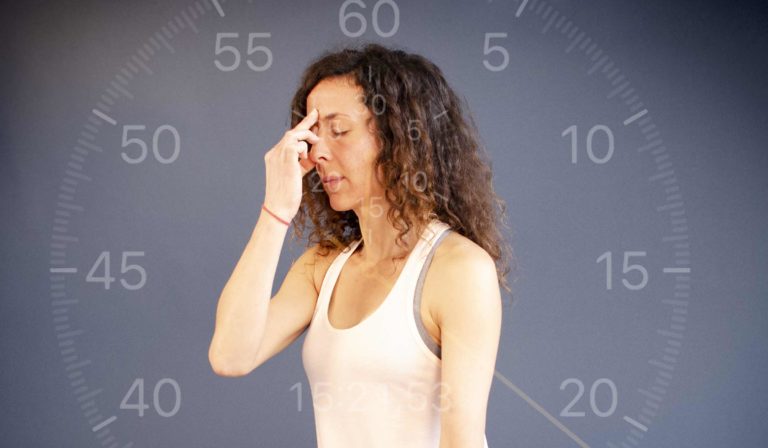You have booked a yoga retreat, and of course, you want to get the most out of it. Preparing mentally and practically is crucial for a good experience. Based on more than twenty years of experience, here are eleven things to sort out before departing on your yoga adventure.
1. Make solid travel arrangements
Making sure you get to your retreat location on time is crucial for a good start. Ensure you know your itinerary, that you have margins for connections and that you have a phone number for the retreat centre if things don’t go as planned.
In addition, double-check that you have understood what time of the day your retreat ends and that you have enough time to make it to your flight or train afterwards. You don’t want to think about travel arrangements and rebooking the last days of your retreat.
2. Tell family and friends you wish to take some time out
In many retreat centres, you won’t have contact with the outside world while attending your course. You might even need to check in your phone, tablets and other electronic devices.
Turning off your phone and refraining from your daily contacts for a period of time will calm you down. Perhaps more than you think. Being able to focus entirely on your yoga practice and yourself is immensely beneficial.
Before leaving home, make it clear to family, friends, business partners, etc., that you don’t wish them to contact you. You might have to explain, but they will usually understand.
You are going to a centre that allows contact with the outside world? Then consider cutting off contact with the outside world anyway. That way, you will get much more out of your stay.
3. Intensify your practice before your retreat
A retreat gives you the possibility to explore yoga in depth. However, how deep you go depends on the length of your retreat and where you start.
If you can, it’s a good idea to do more yoga and meditation than usual the weeks before your retreat. It takes me about two weeks of intense practice before I can appreciate yoga’s more delicate dimensions. Any boost in practice before allows me to get there sooner.
4. Stop consumption of coffee, tea, alcohol and cigarettes in advance
You won’t be taking in caffeine or alcohol during most yoga and meditation retreats. That’s logical since such substances strongly impact your nervous system. Smoking is usually not allowed either.
Are you habitually using such substances? Then take my word for it and quit in advance. You don’t want to battle with withdrawal symptoms during your retreat. It’s likely going to be challenging enough anyway.
5. Set intentions for how to be with others
Going on a retreat is about exploring yourself. But there might also be a social dimension. In that case, it’s good to think about how much you want to engage with others in advance.
It can be inspiring to meet new people on the same path as yourself. Talking and sharing experiences has its place. But you don’t have to feel obliged to hang out with others every time there is a possibility. If you want to be alone, there is nothing wrong with that.
6. Go alone
To get the most benefits from your retreat, I advise you to go alone. As a retreat organizer, I have seen many couples (and a few parents and children) being held back by the presence of their better half.
If you do persuade your significant other to come along, you will feel responsible for their experience. If that person doesn’t like the retreat, it will impact you too. People who come without a personal calling tend not to appreciate it as much.
And just not being able to get away from your usual interaction patterns that define your everyday life is a minus.
7. Set an intention not to be influenced by the opinions of others
During a yoga retreat, your fellow course participants might have ideas about what you are going through together. If others start to spread doubt and negativity, don’t listen to them. After all, you came because you decided to trust the teacher.
I have seen many people ruining their retreat by listening to the complaints of negative fellow participants. I saw this in the early days when I was a retreat participant. I see it now as a guide.
People who complain usually do it because they don’t grasp what is going on. They might also be overwhelmed by everything that is stirring inside of them.
So, keep in mind that you are at risk of being hijacked by a complainer if you are inexperienced and if the retreat turns out to be tough for you.
8. Come openminded
I advise you to leave your expectations at home. Especially if you already have some experience with yoga and or meditation. There are so many different yoga styles and approaches to teaching. If you expect your guide to teach you what you are used to from someone else, you are in for a disappointment.
9. Prepare for extra fees
Here is some down to earth advice. Your retreat might involve extra fees. You might need to pay extra to be picked up at the train station, have your clothes washed, buy personal hygiene products, or pay for free-time activities. Inform yourself in advance what payment options the centre recommends and prepare accordingly.
10. Bring the right kinds of clothes
When I lived at the Haa retreat centre in Sweden, I remember a Californian who showed up for a three-month retreat in January without his winter clothes.
Nowadays, I organize retreats in the French Pyrenees. I inform participants that the weather can vary considerably. It can be super hot or biting cold at nine hundred meters altitude. Despite the information I provide, some come unprepared anyway.
Being well equipped for your practice sessions, free time, and any practical tasks you might be carrying out during your stay is vital.
That Californian guy didn’t stay long on the course. He realized he hated the Swedish winter. Had he been better dressed, his retreat might have had a happier ending.
11. Bring earbuds
In many yoga and meditation centres, you share a room with others. In some hardcore centres, people sleep in large dormitories together. Should you end up in the same room as a snorer you could be in for a challenge. So bring earbuds. It can save your sleep.




